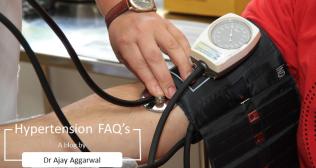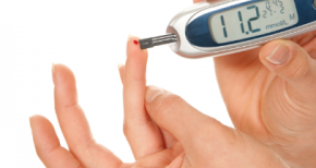
Cushing Syndrome: Recognizing the Symptoms and Causes of Cortisol Imbalance
Cushing syndrome is a complex and often misunderstood hormonal disorder caused by prolonged exposure to high levels of cortisol in the body. Cortisol, commonly known as the "stress hormone," plays a critical role in regulating metabolism, immune response, and blood pressure. However, when the balance is disrupted, it can lead to significant health issues.
This article dives into the depths of Cushing syndrome, exploring its causes, symptoms, diagnostic testing, and Cushing syndrome treatment options. Whether you're a medical professional, caregiver, or simply someone trying to understand unexplained weight gain or fatigue, recognizing the early warning signs of cortisol imbalance is crucial.
What Is Cushing Syndrome?
Cushing syndrome is a condition that develops when your body is exposed to excessive cortisol for a prolonged period. Cortisol is produced by the adrenal glands, located on top of the kidneys, and is vital for many bodily functions, including controlling blood sugar, reducing inflammation, and managing how the body uses carbohydrates, fats, and proteins.
In a healthy individual, cortisol levels fluctuate throughout the day depending on stress, sleep, and activity. However, in people with Cushing syndrome, these levels remain abnormally high. The condition is relatively rare but can be life-altering if left undiagnosed or untreated.
Cushing Syndrome Causes
Understanding Cushing syndrome causes is key to both diagnosis and prevention. The condition can arise from various internal and external sources:
1. Prolonged Use of Corticosteroid Medications
The most common cause is the long-term use of high-dose corticosteroids (like prednisone), which are often prescribed for autoimmune conditions, asthma, or after organ transplants. This form is known as exogenous Cushing syndrome.
2. Pituitary Adenoma (Cushing’s Disease)
A benign tumor in the pituitary gland can lead to excessive production of adrenocorticotropic hormone (ACTH), which in turn stimulates cortisol overproduction. This specific subtype is referred to as Cushing's disease.
3. Adrenal Tumors
Noncancerous (or sometimes malignant) tumors in the adrenal glands can produce too much cortisol independently.
4. Ectopic ACTH Syndrome
Some cancers, such as small cell lung cancer, can produce ACTH outside the pituitary gland, causing a spike in cortisol levels.
While most cases are related to external steroid use, recognizing internal or tumor-related Cushing syndrome causes is vital for targeted treatment.
Cushing Syndrome Symptoms
Cushing syndrome symptoms can be subtle initially but become more evident as cortisol levels remain elevated. Since cortisol affects nearly every organ system, the symptoms are broad and often mistaken for other conditions.
Common Symptoms Include:
- Rapid weight gain, particularly in the face, upper back, and abdomen
- Round, moon-shaped face
- Fat accumulation between the shoulders (buffalo hump)
- Purple or pink stretch marks on the skin, especially on the abdomen, thighs, or breasts
- Thinning skin that bruises easily
- Muscle weakness, particularly in the upper arms and thighs
- Severe fatigue
- High blood pressure
- Glucose intolerance or diabetes
- Mood swings, anxiety, and depression
- Irregular menstrual cycles or decreased fertility in women
- Reduced libido and erectile dysfunction in men
In children, it may also lead to slowed growth combined with weight gain, which is often the first red flag.
Because many of these signs are common in other medical conditions, proper diagnosis becomes essential. This is where Cushing syndrome tests play a pivotal role.
Cushing Syndrome Test and Diagnosis
Diagnosing Cushing syndrome involves a combination of physical examinations, hormone level assessments, and imaging studies. No single test is definitive; multiple evaluations are usually required to confirm the condition and identify its underlying cause.
Most Commonly Used Tests Include:
1. 24-Hour Urinary Free Cortisol Test
This measures cortisol levels in urine collected over a full day. Elevated readings can indicate cortisol overproduction.
2. Late-Night Salivary Cortisol Test
Cortisol is usually low at night. A high late-night salivary cortisol level may suggest Cushing syndrome.
3. Dexamethasone Suppression Test
You’ll be given a low dose of dexamethasone (a synthetic steroid), which normally suppresses cortisol production. Failure to suppress indicates abnormal cortisol regulation.
4. Blood Tests
ACTH levels can help differentiate whether the cause is pituitary-related, adrenal-based, or ectopic.
5. Imaging
CT scans or MRIs may be used to detect tumors in the pituitary gland, adrenal glands, or elsewhere.
Accurate Cushing syndrome test procedures are essential not just for diagnosis but for choosing the correct treatment path.
Cushing Syndrome Treatment Options
Once diagnosed, Cushing syndrome treatment depends on the root cause; whether it’s due to external steroids, pituitary tumors, or adrenal abnormalities.
1. Medication Adjustment (For Exogenous Causes)
If corticosteroids are the culprit, your doctor may gradually reduce the dosage or switch to a non-steroidal alternative. However, never stop steroid use abruptly without medical advice.
2. Surgical Intervention
If a tumor is detected (in the pituitary or adrenal glands), surgical removal is often the first-line treatment. Success rates are high, especially with experienced endocrinologists and neurosurgeons.
3. Radiation Therapy
In cases where the tumor can’t be fully removed or recurs, targeted radiation may help control cortisol levels.
4. Medication for Cortisol Control
Drugs such as ketoconazole, metyrapone, or mifepristone can inhibit cortisol production or block its effects.
5. Adrenal Gland Removal
In rare and severe cases, removal of both adrenal glands may be necessary. This would require lifelong hormone replacement therapy afterward.
Timely and tailored Cushing syndrome treatment significantly improves long-term prognosis and quality of life.
Complications of Untreated Cushing Syndrome
Without appropriate treatment, Cushing syndrome can lead to multiple systemic complications:
- Cardiovascular disease due to chronic high blood pressure and cholesterol
- Type 2 diabetes
- Osteoporosis, increasing the risk of fractures
- Cognitive decline and mood disorders
- Increased risk of infections
- Infertility
These complications make early detection and treatment all the more urgent.
Living With Cushing Syndrome: Recovery and Management
Post-treatment recovery from Cushing syndrome can be a slow process. It may take months or even years for the body to regain hormonal balance and for symptoms to subside completely.
Some key management strategies include:
- Regular follow-ups with an endocrinologist
- Gradual tapering of corticosteroids if applicable
- Bone density monitoring
- Blood sugar management
- Lifestyle changes, including a balanced diet and exercise
- Mental health support for dealing with mood swings and anxiety
Awareness, patience, and consistent care play major roles in managing life after a Cushing syndrome treatment.
Cushing Syndrome in Children
While rare, Cushing syndrome can occur in children, usually due to adrenal or pituitary tumors. Symptoms like weight gain, slow growth, and mood changes often go unnoticed initially. Pediatric endocrinologists play a crucial role in diagnosis and specialized treatment planning.
Preventing Cushing Syndrome
While many causes of Cushing syndrome are not preventable, especially when tumors are involved, some strategies can reduce risk:
- Use corticosteroids only when medically necessary and under supervision
- Monitor long-term medication usage
- Stay informed about side effects of hormonal treatments
- Promptly report unusual symptoms such as rapid weight gain, fatigue, or mood shifts
Prevention is particularly important for patients with autoimmune diseases or chronic inflammation who rely on steroid therapy.
Final Thoughts
Cushing syndrome is more than just a hormonal imbalance; it’s a serious medical condition that affects every part of the body. From unexplained weight gain and fatigue to emotional disturbances, the signs can be diverse and deceptive. Knowing what causes Cushing syndrome, how to recognize its symptoms, and when to seek testing can make all the difference.
Thanks to advancements in medical testing and treatment protocols, the outlook for patients has improved dramatically. Whether you’re managing symptoms, supporting a loved one, or exploring options for Cushing syndrome treatment, awareness is your first step toward recovery.



















